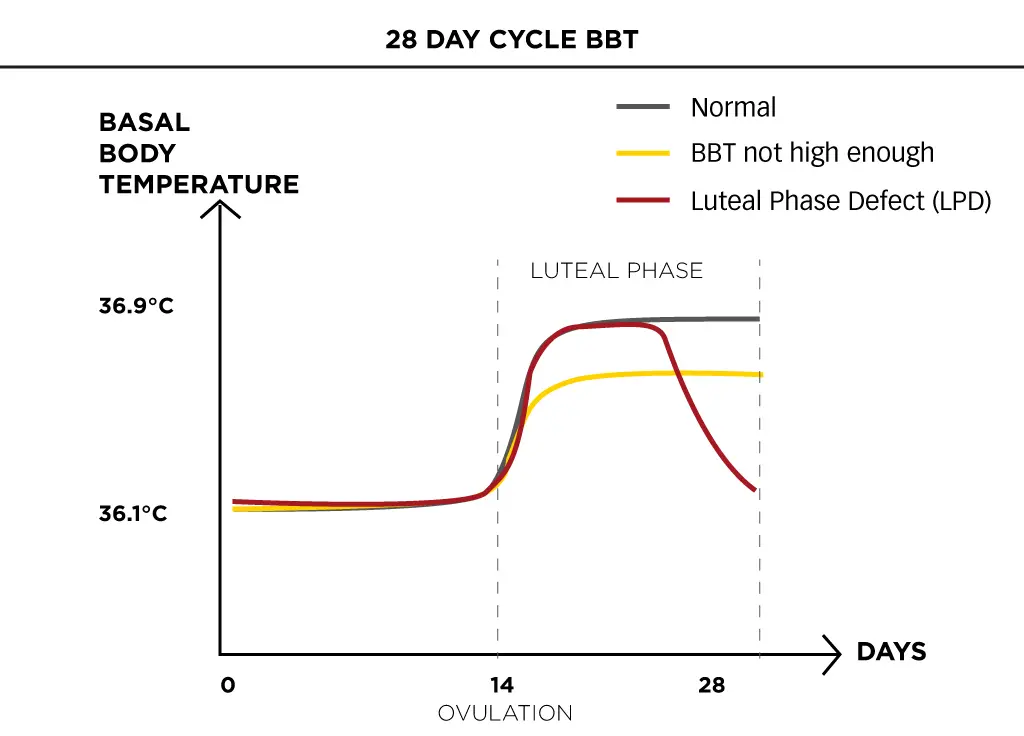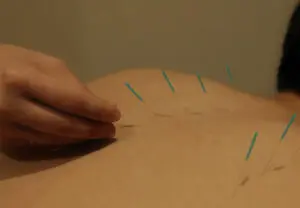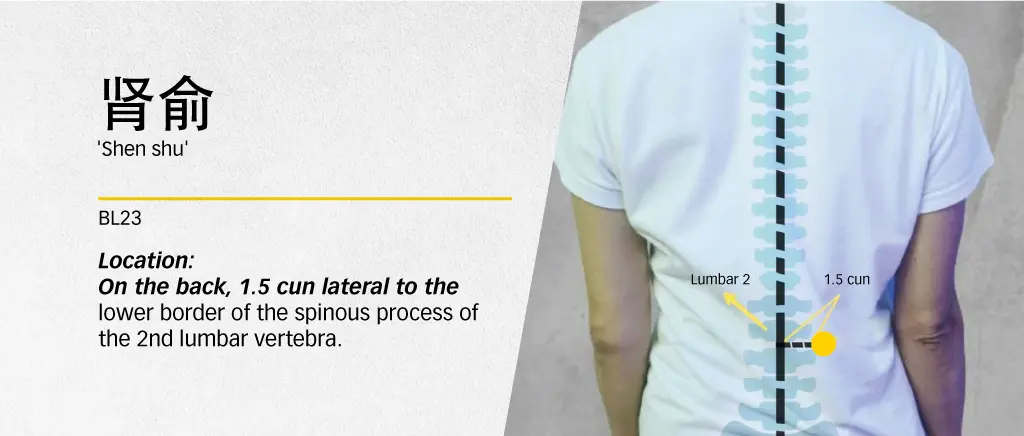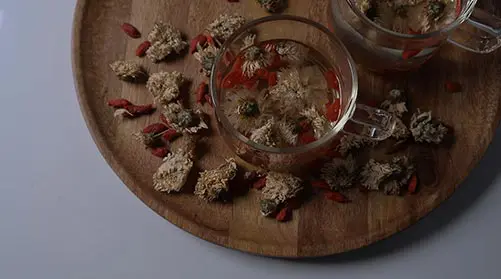Have you ever wondered why Chinese elders or TCM physicians always give the same old advice not to drink cold water, especially to women during their menstrual periods? The more serious consequence of having a cold womb is that it can hinder the process of pregnancy, resulting in infertility. In fact, having a cold womb is so common that according to Chinese medicine, around half of infertility is the result of having a cold womb.
Having a cold womb is a very common phenomenon in Singapore. This is due to the bad habits cultivated from living in a warm summer weather throughout the year. Most people tend to indulge in iced beverages, “cold” food like salads and sushi, staying in air-conditioned rooms for long hours and wearing trendy clothes that expose a lot of skin like crop tops and mini skirts/shorts. These lifestyle habits may eventually lead to a cold womb.
Cold Womb in Western Medicine
What does it mean to have a cold womb in western medicine?
The uterus (which is also called the womb) is a pear-like organ located in the lower abdomen, responsible for a woman ‘s reproductive functions, mainly menstruation and pregnancy. During the second half of the menstrual cycle (Luteal phase), a “warming” hormone also known as progesterone, is produced to raise the body temperature in preparation for proper implantation should fertilisation takes place. This temperature is usually recorded and monitored using a Basal Body Temperature (BBT) chart.

Having a cold womb will indicate that during the luteal phase, BBT chart reflects that progesterone level produced is not high enough or the luteal phase is shortened. This is also known as a Luteal Phase Defect (LPD). Thus, with a cold womb, it is then harder for your uterus to have an appropriate uterus lining thickness for implantation of fertilised eggs. This can also cause early shedding of the uterus lining. In other words, this characteristic of your womb imposes potential problems like early menses, infertility and even miscarriage.
Cold Womb in TCM
How about having a cold womb in Traditional Chinese Medicine?
In terms of TCM, cold womb refers to 宫寒 gong han. 宫 gong refers to 胞宫 Bao gong which comprises of the whole female reproductive system including the womb, ovaries and fallopian tubes etc. 寒han literally just means cold.
So where is this cold derived from?

There are two types of cold- acquired and endogenous cold.
All of our bad lifestyle habits contribute to acquired cold. In the long run, long-term intake of cold consumption or exposure to cold air will deplete the internal fire produced by our kidney. This is a body constitution called Kidney yang deficiency. So in TCM, having a cold womb implies that your body constitution belongs to that of Kidney yang deficiency.
So what does it mean to have a cold womb/ Kidney Yang deficiency?
Kidney x Reproductive System
 From a TCM perspective, the Kidneys play the main role in reproduction.
From a TCM perspective, the Kidneys play the main role in reproduction.
The kidney yang is essential to warm our uterus to promote blood circulation so that the uterus is sufficiently nourished in preparation for potential implantation.
The kidney yin is also just as important: it improves the quality of the eggs produced by the ovaries, increasing successful pregnancy rate. The Kidney yin stores essences that serve as a raw material to produce fluids (e.g. blood) in our body to nourish the organs and tissues in our body.
The blockage of Qi and blood flow in the uterus caused by a cold womb would also make an individual more prone to having irregular menses and painful cramps.
TCM theory states that 寒主收引,其性凝滞.
This means that cold has contracting properties that will contract the blood vessels, slow down the flow of Qi and blood and cause stagnation of Qi and blood in our body. When the flow of Qi and blood in the uterus is obstructed, menstrual blood flow will be affected, resulting in irregular menstrual cycles and dark clotty menstrual blood.
Menstrual cramp is also associated with obstructed blood flow, evident in TCM theory “Where there is no flow there is pain; when there is no pain, there is flow” (不通则痛,不痛则通).
Other signs of having a cold womb?

How can TCM help?
Since ancient times, TCM has placed a huge emphasis on warming the uterus and thus, has different approaches to expel cold and restore Kidney Yang. TCM treatment methods can not only help with the warming of the uterus, regulating ovulation and menstrual cycle, it can also help to improve the quality of eggs produced in the ovaries and reduce menstrual cramps.
The following are the most commonly used Chinese medicine treatments to address a cold womb and improve fertility.
Acupuncture

Acupuncture uses thin needles to stimulate certain acupoints along the meridians to address various deficiencies as diagnosed by the physician. For example, stimulating certain acupoints can help to strengthen the womb by invigorating the kidney system.
Moxibustion
Moxibustion is a form of heat therapy by using heated dried mugwort placed above acupoints to expel cold, promote Qi and blood circulation of the meridians. Thus, it is commonly paired with acupuncture treatment to tonify the Kidney Yang and treat cold womb.
Herbal medicine
Herbal Medication can also be incorporated to help warm the Kidney Yang, expel cold and promote blood circulation.
To determine the right treatment for each individual, it is necessary to consult a TCM physician for a proper assessment and diagnosis. PULSE has a dedicated TCM Fertility Programme to help improve couples’ chances of conceiving through Chinese medicine. Learn more about it below.
DIY TCM Tips for Fertility
Acupressure Massage
You can massage these acupoints in circular for 1 to 2 minutes, 3 times a day.
阳池 (Yang Chi, TE4)
Yang Chi refers to a pool of Yang energy and thus, stimulating this acupoint can help with the stimulation of Yang energy in our body.

三阴交 (San Yin Jiao, SP6)
San Yin Jiao is associated with the Liver, Spleen and Kidney system and hence, able to tonify the following systems.

太溪 (Tai Xi , KD3)
Tai Xi belongs to the kidney meridian and it is an acupoint which vitality qi of the kidney passes through and stops at that point. Hence, it is beneficial in restoring the kidney system vitality.

肾俞 (Shen Shu, BL23)
Massage your lower back using your knuckles downwards. Repeat 10 times a day. Alternatively, you can use both palms, place it on your lower back and rub continuously for 1minute so as to warm the lower back.

Use a Moxa Pad
Place a self-heating MOXA Pad around the lower abdominal area before you sleep to introduce heat directly to the womb area. Warmth helps to dilate the blood vessels to promote better blood circulation and reduce painful menstrual cramps. Studies have also shown that better blood flow to the uterus is associated with higher pregnancy outcomes.
Food Therapy
Tea Recommendations

Ginger is good for warming the stomach as well as expelling cold.
Ingredients:
- A slice of fresh ginger
- 2-3 dried red dates (seeds removed)
- 2g of Cinnamon
- 1 teaspoon of brown sugar
Instructions:
- Add the ingredients into a cup and add 250ml of boiling water.
- Let it steep for 5 minutes.

Both longan and red dates are beneficial for replenishing our body’s blood and Qi.
Ingredients:
- Longans, 5pcs
- Red dates (seeds removed), 3pc
- Water, 500ml
Instructions:
- Add the longans , red dates (seeds removed) and water.
- Bring to a boil.
- Once the water starts to boil, turn to low heat and simmer for 20mins before drinking.

Both motherwort and rose buds are also good stress and anxiety relievers which help to treat menstrual issues.
Ingredients:
- Motherwort leaves, 2g
- Rose buds, 2g
- Water, 250ml
Instructions:
- Add 250ml of boiling water into 2g of motherwort leaves and 2g of rose buds.
- Let it steep for 5 minutes.
Self-care tips
- Avoid over consumption of cold drinks or raw food. You can cook the vegetables before consuming. Avoid consuming cold fruits directly taken out from the fridge.
- Ensure you have sufficient clothing especially around the lower abdomen during menstruation and postpartum.
- Take foot baths or wear socks to protect the meridians against cold from entering from your bare feet.
- Exercise at least 3 times a week for at least 30 minutes to improve blood circulation in our bodies. This helps to build up our immunity.
It’s never too late to give your uterus the proper care that it needs. Find out more about our Fertility programme and learn more about how TCM can help with Women’s Health.
Note: Information provided is not a substitute for a physician or any form of medical care. Individual symptoms differ due to different body constitutions and diagnosis. One should consult a licensed TCM practitioner for accurate diagnosis and treatment.




















